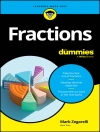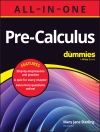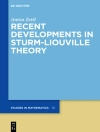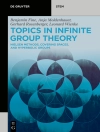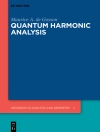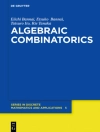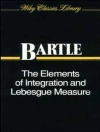The volume is dedicated to Boris Mirkin on the occasion of his 70th birthday. In addition to his startling Ph D results in abstract automata theory, Mirkin’s ground breaking contributions in various fields of decision making and data analysis have marked the fourth quarter of the 20th century and beyond. Mirkin has done pioneering work in group choice, clustering, data mining and knowledge discovery aimed at finding and describing non-trivial or hidden structures—first of all, clusters, orderings and hierarchies—in multivariate and/or network data.
This volume contains a collection of papers reflecting recent developments rooted in Mirkin’s fundamental contribution to the state-of-the-art in group choice, ordering, clustering, data mining and knowledge discovery. Researchers, students and software engineers will benefit from new knowledge discovery techniques and application directions.
Daftar Isi
Three and One Questions to Dr. B. Mirkin about Complexity Statistics (I. Mandel).- Section 1.- A Polynomial Algorithm for a Class of 0-1 Fractional Programming Problems Involving Composite Functions, with an Application to Additive Clustering (P. Hansen, C. Meyer).- Experiments with a Non-Convex Variance-Based Clustering Criterion (R.F. Toso, E.V. Bauman, C.A. Kulikowski, I.B. Muchnik).- Strategy-Proof Location Functions on Finite Graphs (F.R. Mc Morris, H.M. Mulder, F.S. Roberts).- A Pseudo-Boolean Approach to the Market Graph Analysis by Means of the p-Median Model (B. Goldengorin, A. Kocheturov, P.M. Pardalos).- Clustering as an Approach to 3D Reconstruction Problems (S. Archangelski, I. Muchnik).- Selecting the Minkowski Exponent for Intelligent K-Means with Feature Weighting (R. Cordeiro de Amorim, B. Mirkin).- High Dimensional Data Classification (V. Pappu, P.M. Pardalos).- Algorithm FRi S-TDR for Generalized Classification of the Labeled, Semi-Labeled and Unlabeled Datasets (I.A. Borisova, N.G. Zagoruiko).- From Separating to Proximal Plane Classifiers: A Review (M.B. Ferraro, M.R. Guarracino).- A Note on the Effectiveness of the Least Squares Consensus Clustering (B. Mirkin, A. Shestakov).- Section 2.- Single or Multiple Consensus for Linear Orders (A. Guenoche).- Choice Functions on Tree Quasi-Orders (R.C. Powers, F. Mc Morris).- Weak Hierarchies: a Central Clustering Structure (P. Bertrand, J. Diatta).- Some Observations on Oligarchies, Internal Direct Sums and Lattice Congruences (M.F. Janowitz).- Thinking Ultrametrically, Thinking p-Adically (F. Murtagh).- A New Algorithm for Inferring Hybridization Events Based on the Detection of Horizontal Gene Transfers (V. Makarenkov, A. Box, P. Legendre).- Section 3.- Meaningless Statements in Landscape Ecology and Sustainable Environments (F. Roberts).- Nearest Neighbour in Least Squares Data Imputation Algorithms for Marketing Data (I. Wasito). An AST Method for Scoring String-to-Text Similarity in Semantic Text Analysis (K. Chernyak, B. Mirkin).- Improving Web Search Relevance with Learning Structure of Domain Concepts (B. Galitsky, B. Kovalerchuk).- Linear Regression via Elastic Net: Non-Enumerative Leave-One-Out Verification of Feature Selection (E. Chernousova, N. Razin, O. Krasotkina, V. Mottl, D. Windridge).- The Manipulability Index in the IANC Model (Y. Veselova).


